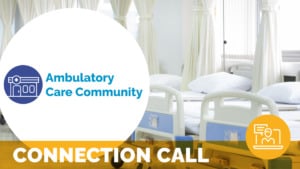Role of Nurse Executives in Patient Experience

This white paper by The Beryl Institute explores the role of nurse executive leadership and the impact and influence nurse leaders can have to uncover the fundamental practices and actions which drive experience success. Published in collaboration with The Beryl Institute’s Nurse Executive Council, The Role of Nurse Executives in Patient Experience, provides three macro themes which positively impact patient experience success: elevating humanity, acting holistically by listening and engaging all individuals and acknowledging all voices. This PX paper shares nurse leaders’ thoughts, reflections and learned lessons from the experience journey including the importance of: Helping all individuals recognize the impact they have on the patient experience Creating an experience culture within senior leadership Committing to leadership rounding as an essential practice for sustaining culture Listening and building processes that support feedback Connecting focus with a sense of purpose on the experience journey A special thank you to the voices reflected in this PX paper, the nine contributors from The Beryl Institute’s Nurse Executive Council: Debra Albert, MSN, MBA, RN, NEA-BC, SVP, Patient Care Services, CNO, University of Chicago Medicine Dale Beatty, DNP, RN, NEA-BC, CNO/VP Patient Care Services, Stanford Health Jane Englebright, PhD, RN, CENP, FAAN, Senior Vice President & Chief Nurse Executive, HCA Healthcare Karen Grimley, PhD, MBA, RN, NEA-BC, FACHE, Chief Nursing Executive, UCLA Health and Assistant Dean School of Nursing, UCLA Barbara Jacobs, MSN, NEA-BC, VP Nursing/CNO, Anne Arundel Medical Center Jerry Mansfield, Ph.D., RN, NEA-BC, Executive Chief Nursing Officer and Chief Patient Experience Officer, Medical University of South Carolina Health Nancy Shendell-Falik, RN, MA, President, Baystate Medical Center, SVP Hospital Operations, Baystate Health Charleen Tachibana, DNP, RN, FAAN, Senior Vice President, Quality & Safety, CNO, Virginia Mason Health System Laura Wood, DNP, MS, RN, NEA-BC, SVP, Patient Care Operations & CNO, Boston Children’s Hospital “These leaders recognize the vital role they play and acknowledge what a nurse executive can and must do to ensure a commitment to experience in their organizations,” said Jason A. Wolf, PhD, CPXP, President of The Beryl Institute. “At the same time, they exemplify the humility and grace to acknowledge that perhaps their greatest gift is that of catalyst for all in the organization who can and must be focused on experience success.”
Related content
-
 Culture & Leadership
Culture & LeadershipEradicating Jargon Oblivion: Enhancing Patient Experience through Clear Communication
By Dr. Michael B. Pitt Professor of Pediatrics at the University of Minnesota | Co-Director of the Clear Clinical Communication Research Group Introduction As clinicians, none of us went into medicine to confuse people. Yet studies on our use of jargon – the technical terminology of a given group – reveal that we consistently do
Learn more -
 Culture & Leadership | Patient Family & Community Engagement
Culture & Leadership | Patient Family & Community EngagementAmbulatory Care Community Connection Call – Rounding Best Practices
2:00pm ET / 1:00pm CT / 12:00pm MT / 11:00am PT – While rounding is a well-established practice in acute care, ambulatory leaders continue to voice the need for similar approaches in outpatient settings. Rounding, whether with patients, staff, or both, can play a vital role in improving communication, engagement, and overall experience. Join the
Learn more -
 Culture & Leadership
Culture & LeadershipPX Champions: Improving our Impact by Broadening our Reach
How can we ingrain patient experience into our organization’s culture? This is the question our team pondered as we developed the 2024 strategy for our medical group. At that time, patient experience (PX) was something teams focused on, but mostly when scores were low. It was our goal for PX to be a foundation from
Learn more
